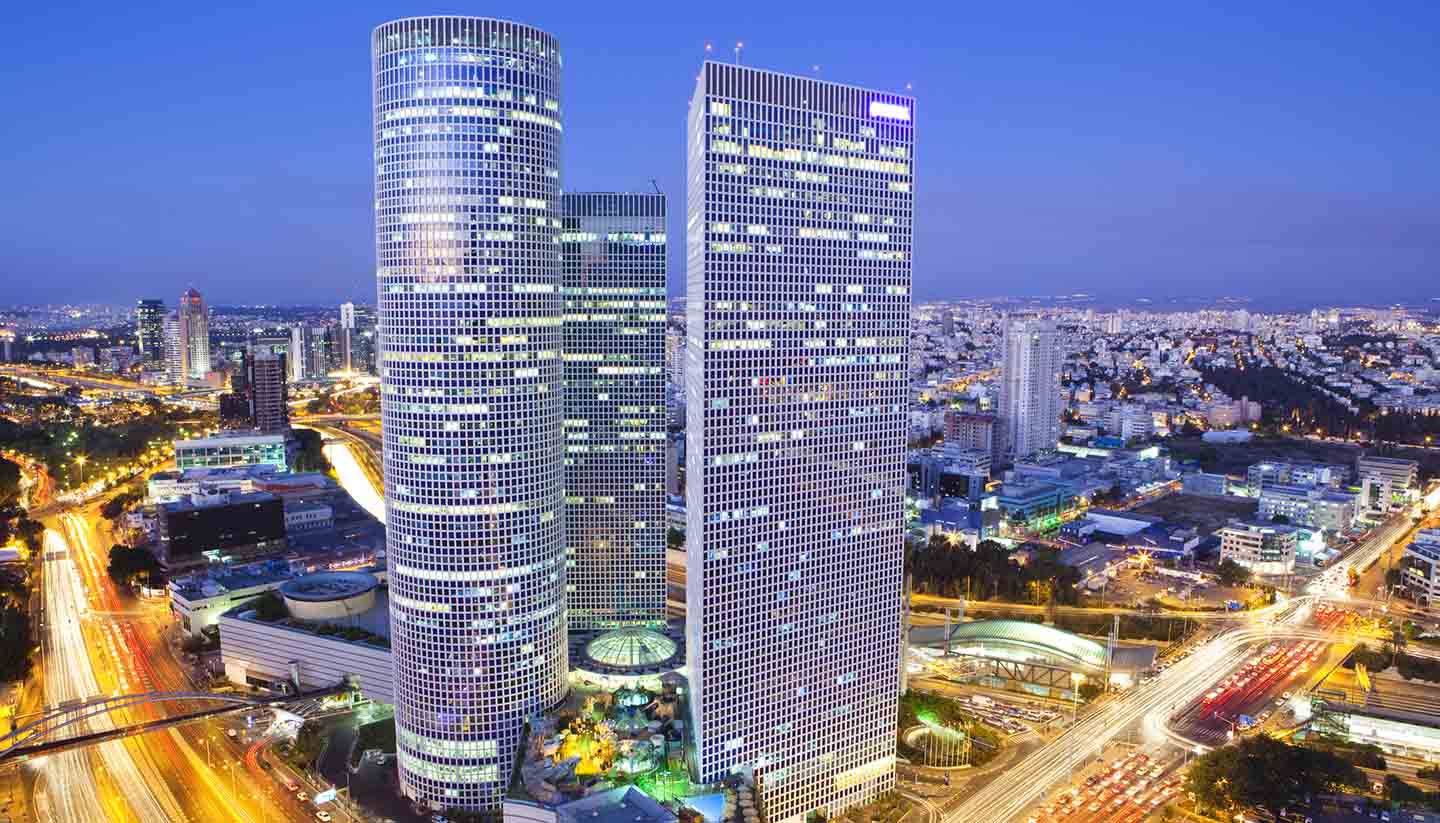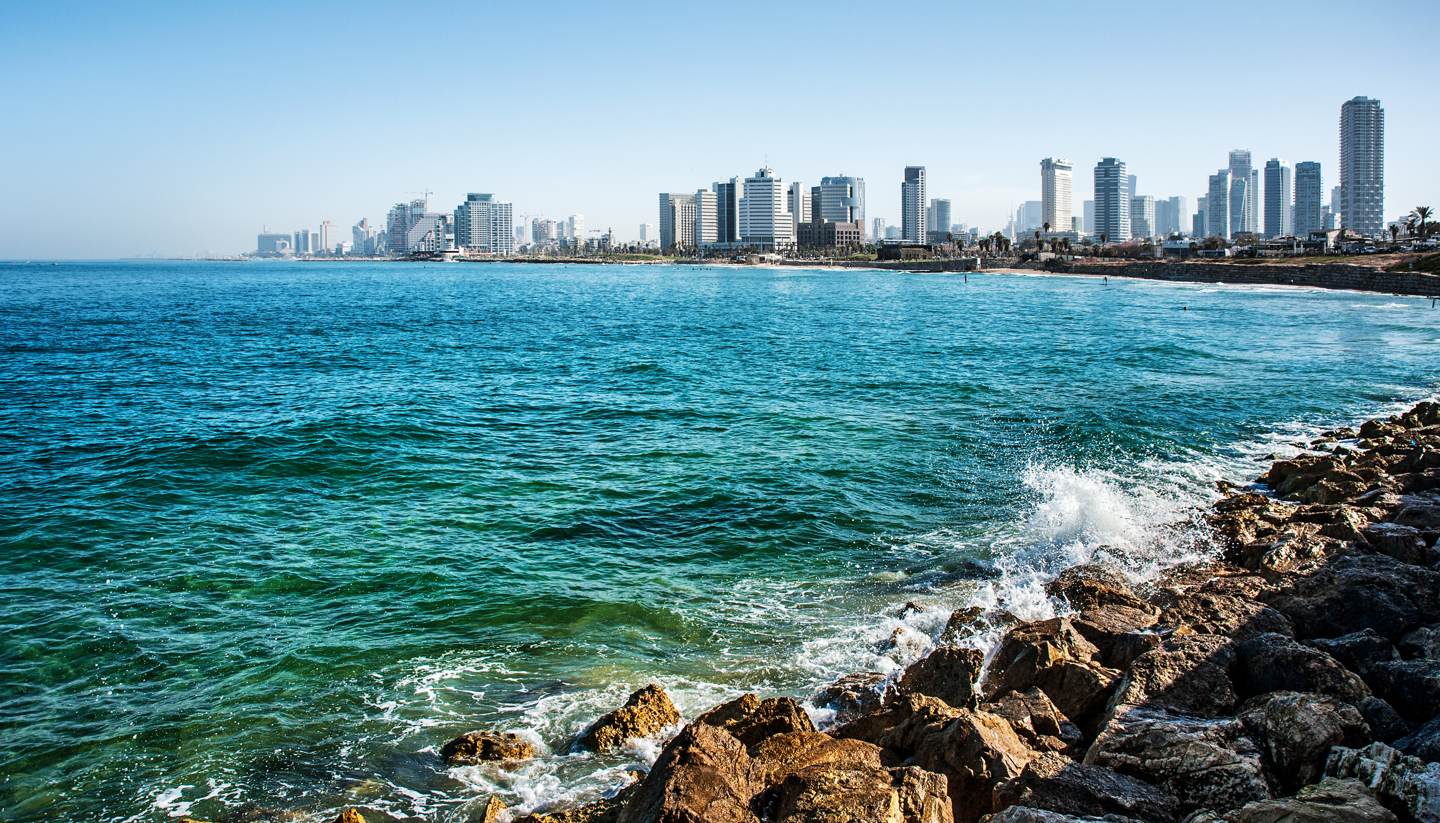Israel Food and Drink
Israel's diverse population is reflected in its varied culinary styles, and food forms an integral part of life, from socialising to family gatherings to religious events. From top gourmet restaurants to sumptuous street food, the country's wonderfully varied tastes and styles are one of the highlights of a trip. Most restaurants are moderately priced and of high quality, although street food is a great cheap option. Table service is the norm, except at fast food outlets. Places catering to tourists usually have menus in both Hebrew and English.
Restaurants, cafés and bars rise and fall with popularity and it is not uncommon to see queues down the street for some of Tel Aviv's most popular eateries. Kosher and non-Kosher restaurants can be found throughout the country, although more secular cities such as Tel Aviv have considerably fewer kosher restaurants than Jerusalem.
Café culture is huge and there is little that Israelis would rather do than sip lattes or strong Arabic coffee and catch-up in one of the outdoor cafés. Funky, artistic, chic or cosy, cafés are the place to be seen. All serve food that range from hearty breakfasts to sandwiches, light lunches and local-favourite snacks.
Bars serve high quality food until the early hours of the morning and stock all international brands of spirits and soft drinks. Alcohol is expensive, however.
Specialities
• Falafel (deep-fried balls of mashed chickpeas and herbs) in a pita bread, with hummus (ground chickpeas), tahini (sesame seed sauce) and salads.
• Salads, which include savoury vegetable dishes served cold, such as aubergines.
• Shishlik (charcoal-grilled meat on a skewer).
• Shwarma (slices of grilled meat served in a pita bread with salad).
• Ashkenazi classics like cholent (Shabbat meat stew) and gefilte fish, a white fish dish.
• Burekas (small pastry parcels) eaten on Friday mornings. They can be stuffed with mushroom, cheese, potato, spinach or meat.
• Shakshuka (a brunch or breakfast dish consisting of tomatoes, onions and eggs eaten with pita).
• Limonana invented in the early 1990s, is lemonade made with freshly squeezed lemon and mint is a summer staple. Rimonana is of a similar nature, but is made with pomegranate juice and mint.
• Shoko b'Sakit (chocolate in a bag) is also popular, particularly among youths, is chocolate milk in a bag that can be bought in supermarkets and gas stations.
Things to know
The Hebrew word kosher means conforming to Jewish religious laws. There are several detailed rules – not eating dairy in the same meal as meat and avoiding pork and shellfish are the most significant to visitors. Eateries in Israel will display a kosher certificate denoting whether they abide by these rules. In Tel Aviv many restaurants and café’s do not serve kosher food, although in cities such as Jerusalem most will be kosher.
Tipping
Israelis tip 12-15% in restaurants and cafes. Often this is added to the bill, but if service was not satisfactory you can ask to have it removed.
Drinking age
18.





